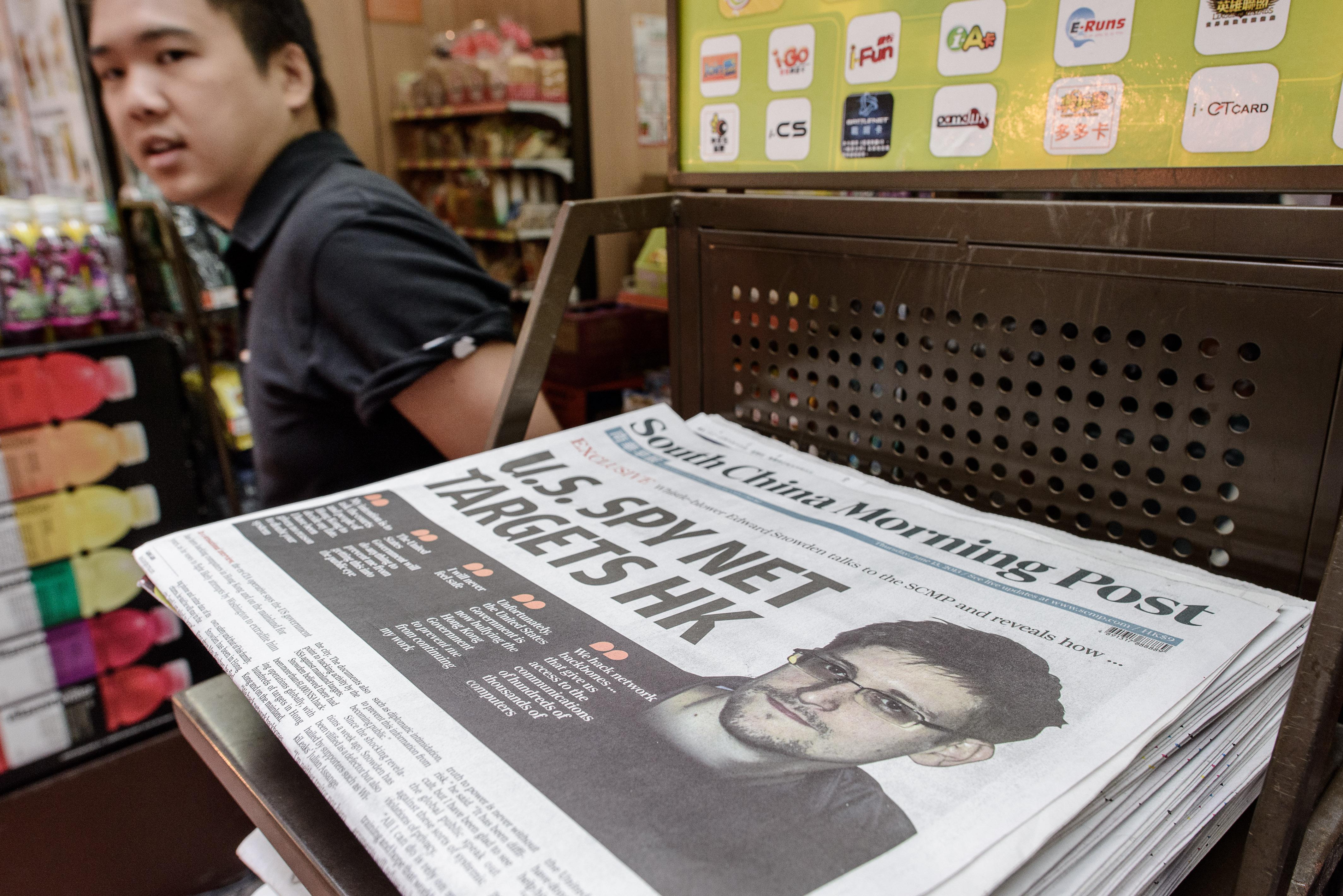Yesterday, on the way into Senate lunches, Sen. Rand Paul got the question that every senator was getting some version of. Sen. Dianne Feinstein was calling Edward Snowden a “traitor.” Was he a traitor?
“Each individual has to decide when they become civilly disobedient,” said Paul. “I’m trying to change the law.”
The idea that “Washington” is condemning Edward Snowden en masse is a little pat; Washington includes a number of libertarian-minded people grateful that Snowden exposed the NSA’s PRISM program. In his new interview with the South China Morning Post (a Hong Kong newspaper that is largely able to avoid censors), Snowden tests their patience by expanding his focus. He’s no longer talking about how the U.S. government looks at its citizens. He’s talking about its own cyberwar.
Snowden said that according to unverified documents seen by the Post, the NSA had been hacking computers in Hong Kong and on the mainland since 2009. None of the documents revealed any information about Chinese military systems, he said.
One of the targets in the SAR, according to Snowden, was Chinese University and public officials, businesses and students in the city. The documents also point to hacking activity by the NSA against mainland targets.
“We hack network backbones – like huge internet routers, basically – that give us access to the communications of hundreds of thousands of computers without having to hack every single one,” he said.
“Since 2009” is key here; Snowden didn’t join Booz Allen Hamilton until this year. So what happened in 2009? In December of that year (very late, revealed in January), Google, Adobe, and a host of other companies were hacked. The United States asked China to investigate and see if the hacks originated in their country, knowing pretty well that they did. China called the charge “groundless” and the campaign “hegemonic.” Only one year later did a WikiLeaks cable—yes, pause and drink in the irony—put some evidence behind the United States’ claim. It’s generally accepted now that the 2009 attack was perpetrated by the Chinese.
So if American spy agencies are running their own cyberwar, that’s … not really surprising. It’s not especially scary, either, not in the way that domestic spying is scary. You might not want military gear or tactics to make their way to the Denver police department, but you probably don’t mind military gear and tactics on carriers in the South China Sea.
But Snowden sounds put out by the idea of American hacking, hacking by a country with liberal speech rights against assets in a country with heavy censorship, Internet regulation, and black-marketing of goods.
“Last week the American government happily operated in the shadows with no respect for the consent of the governed, but no longer. Every level of society is demanding accountability and oversight.”
Snowden said he was releasing the information to demonstrate “the hypocrisy of the US government when it claims that it does not target civilian infrastructure, unlike its adversaries”.
“Not only does it do so, but it is so afraid of this being known that it is willing to use any means, such as diplomatic intimidation, to prevent this information from becoming public.”
Snowden’s problem is larger than domestic spycraft. It’s a problem with spycraft, period. The people circling him now and dreaming of a “treason” case against him have to notice that.
